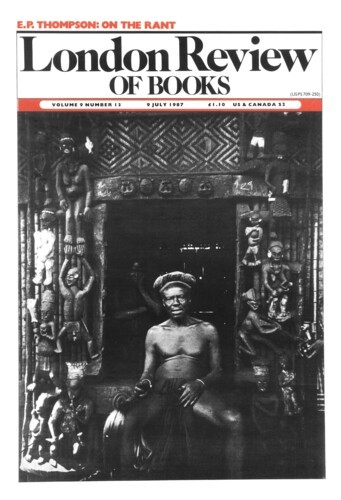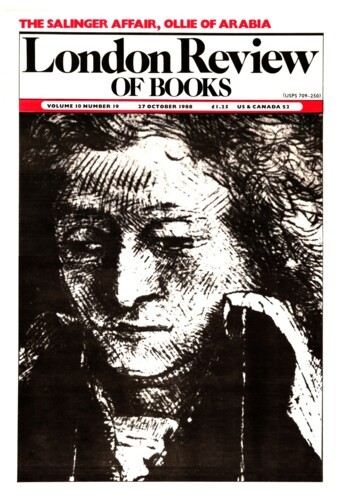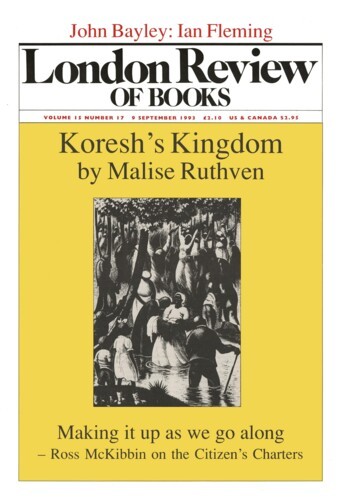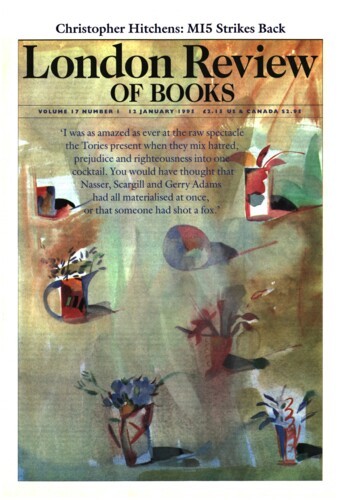Like a row of books by Faber
Peter Porter, 22 January 1987
It was the young Auden, writing at about the time he was composing his ‘Letter to Lord Byron’, who declared that you could tell if someone was going to be a poet by considering his love of words. If he found words fascinating – their sounds, their peculiar symmetries and associations, their chimes, rhymes, assonances and quiddities – then he was likely to prove the real thing. If, on the other hand, he regarded words as the medium for important ideas he wished to impart, then, however impassioned or crusading he might be, he wasn’t going to be primarily a poet, even if he cast his messages to the world in verse. This nostrum begs many questions, but it remains a good rule-of-thumb. By this test, Clive James is a true poet. Line after line of his has a characteristic personal tone, a kind of end-stopped singingness which is almost independent of what it says. The following are taken at random from Other Passports:’





